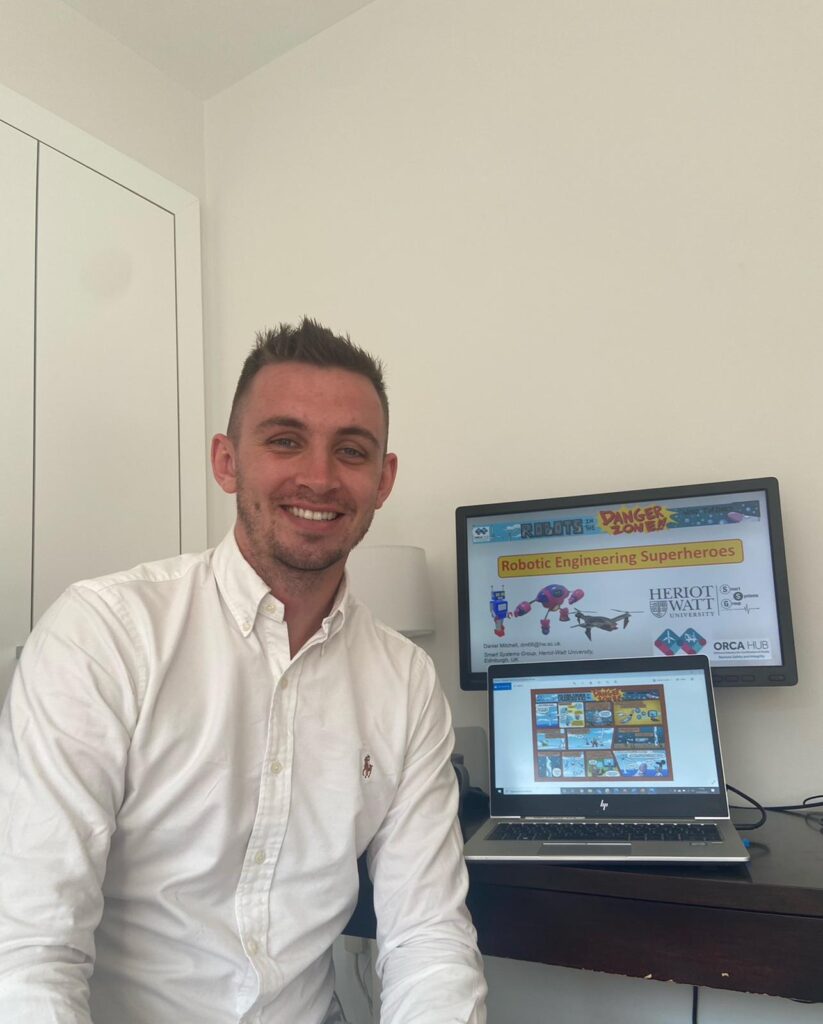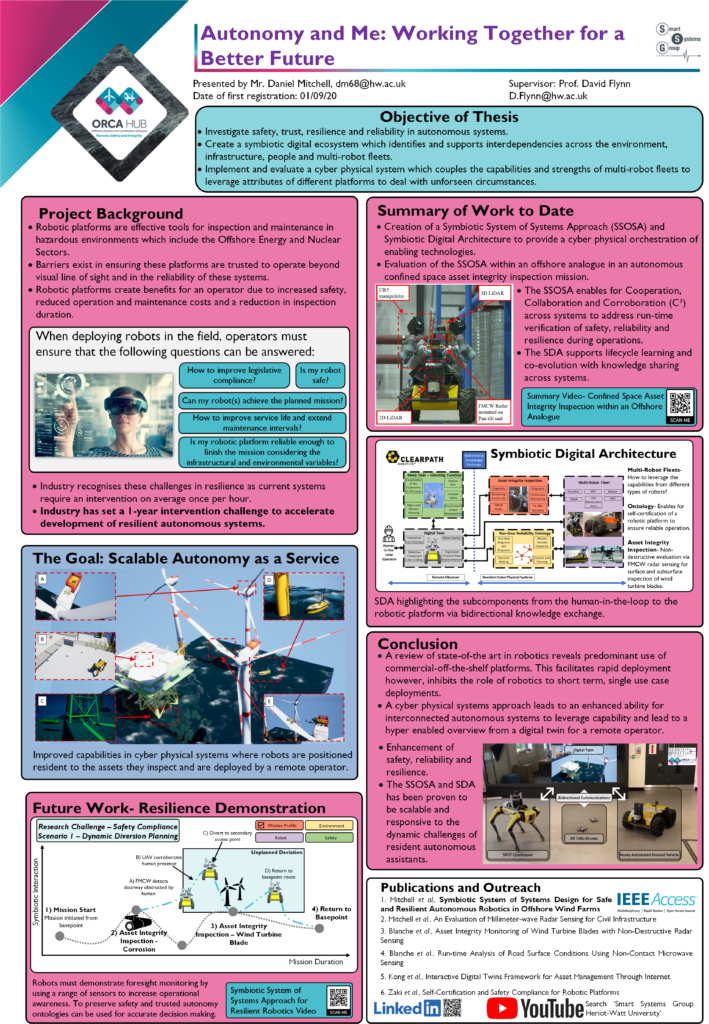The Smart Systems Group congratulate Daniel Mitchell who has been chosen as the winner of the Postgraduate 1st year Research Prize for 2021 from the Institute of Sensors, Signals and Systems, The School of Engineering and Physical Science (EPS) at Heriot-Watt University.
1st year Postgraduate Research Prizes, which were based on the research posters presented at the Poster Event which took place last week as part of PGR Day. These posters were judged on the quality and presentation of the research work and although there could only be a limited number of attendees at this year’s event, it was a great opportunity for these students to present their work in person to the judges.


Daniel Mitchell-‘ It has been great being part of the Smart Systems Group since joining after graduating from my Masters in Electrical and Electronic Engineering at Heriot-Watt University. Moving into robotics has been a great challenge to get to grips with but I have had a great support network throughout the team. I would like to thank my primary and secondary supervisors Prof. David Flynn and Dr. Theodore Lim and, my colleagues Dr. Jamie Blanche, Mr. Sam Harper, Dr. Osama Zaki, Mr. Joshua Roe, Mr. Wenshuo Tang, Dr. Ranjeetkumar Gupta and Prof. Valentin Robu. A shared success for all of us.’
Daniel’s submitted abstract for Autonomy and Me: Working Together for a Better Future
The transition of disruptive technologies into society and industry has always required trust and acceptance from end users. The objective of this thesis presents how autonomous systems are enablers in unlocking human potential, supporting a sustainable and prosperous future. Using the context of the Offshore Renewable Energy (ORE) sector the project demonstrates how the Symbiotic System Of Systems Approach (SSOSA) can create autonomous robotic assistants that protect and collaborate with people, creating high value jobs within a symbiotic partnership that delivers mutually optimized benefits, with an emphasis on transferability across people and place.
Within multiple high value industries and future societal services, digitalization, artificial intelligence and autonomous systems are omni-present in advancing current capabilities. Trustworthy autonomy is an elemental area of research, though lacking sufficient advancement to be applied with high fidelity, supports how people and society may be empowered by advances in robotic automation. The complex interaction dynamics of human-machine systems today also mean digitalization is inevitable if society is to connect business, people, place, and technology. The Symbiotic Digital Architecture (SDA) integrates current state-of-the-art technologies to address operational and resilience requirements enhancing trusted autonomy.
The SSOSA reflects the lifecycle learning and co-evolution with knowledge sharing for mutual gain of robotic platforms and remote human operators. The approach provides a holistic overview, focusing on the functional, operational, safety and planning requirements within an interactive and bidirectional digital twin. The resultant SSOSA and SDA was evaluated in an asset inspection mission within a confined space operating environment. Demonstrating the ability of the SSOSA to overcome safety, reliability and resilience challenges. The results evaluate sudden and gradual faults, alongsideunknown events, that may jeopardize an autonomous mission. Using distributed and coordinated decision making, the SSOSA enhances the analysis of the mission status, which includes diagnostics of critical sub-systems within the resident robot.
Read more in his most recently published journal article to IEEE Reliability Society available to view open access – Symbiotic System of Systems Design for Safe and Resilient Autonomous Robotics in Offshore Wind Farms
